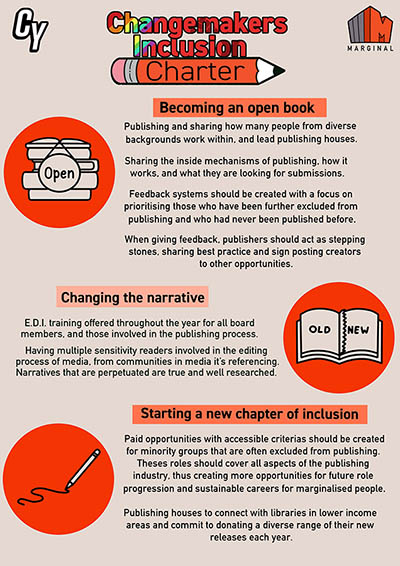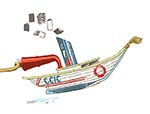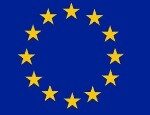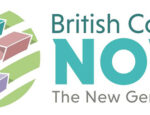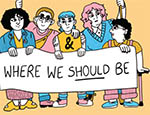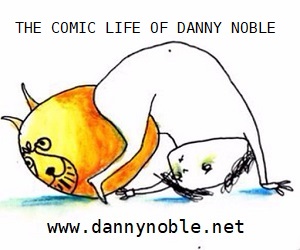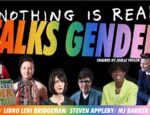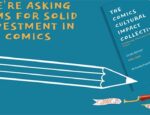
There are lots of very important conversations finally being engaged in of late about comics and inclusion, many of those being led by activist groups like the Comics Cultural Impact Collective and the Cartoonist Cooperative. News today from creative community organisation Comics Youth about their own Publishing Inclusion Charter that looks to challenge publishers to adopt more inclusive practices. An important read, and you can learn more about this initiative in the press release below.
COMICS YOUTH CIC HAVE LAUNCHED A PUBLISHING INCLUSION CHARTER DEVELOPED BY MARGINALISED YOUNG PEOPLE, CHALLENGING PUBLISHERS TO ADOPT MORE INCLUSIVE AND ACCESSIBLE PRACTICES.
- The Changemakers Inclusion Charter was launched on April 9th Comics Youth CIC is asking publishers to take up the campaign and sign the Charter, which can be read here: https://www.marginalpublishing.co.uk/changemakers-inclusion-charter
- The Charter aims to improve conditions in publishing by calling for greater accessibility, transparency and inclusion in the industry.
- The Charter was created by the Marginal Changemakers, a core programme that Comics Youth runs, which encourages marginalised young people to get involved in activism and publishing.
On Tuesday 9th April 2024, Comics Youth CIC officially launched the Changemakers Inclusion Charter. The Charter was the work of the Marginal Changemakers, a cohort of marginalised young people aged 14-25 who are using activism to make publishing more equitable and to create positive changes in the industry.
The Changemakers Inclusion Charter is the result of several months of learning and reflecting on the barriers within publishing for marginalised communities. The Charter focuses on issues of transparency, accessibility, and inclusion in publishing.
Publishers who want to know more and get involved can visit https://www.marginalpublishing.co.uk/changemakers-inclusion-charter and fill out a form in order to join the initiative and sign the charter.
The UK publishing workforce currently suffers from a lack of diversity. The publishing sector has historically been one dominated by white, upper class, able-bodied men and the Changemakers Inclusion Charter is aimed at not only making it easier for marginalised communities to make a career in publishing, but for that career to be sustainable. The Marginal Changemakers are urging publishers to take a positive stand for accessibility and inclusion within publishing and to adopt the below Charter.
‘We are so proud of the work our young people have done, learning, reflecting, and campaigning for real, positive change in the publishing industry. The roadmap to improve the industry is here – now we just need publishers to answer the challenge.’ Ollie Hicks – Marginal Changemaker Lead.
‘The London-Centric nature of the UK publishing industry is completely inaccessible to marginalised youth. Stories uplift and empower us; they have the power to connect us and access different perspectives, yet currently those who write and those who decide what gets published are (largely) cut from the same cloth. We believe that diversity has become another corporate buzzword; a box ticking exercise. This lack of accountability is deeply troubling. When we’re told stories from a limited pool of people-drawing on a particular set of experiences-we lose the bigger picture, and our worldview becomes limited. This charter is a necessary step to improve equity on a national scale.’ Rhiannon Griffiths MBE – Managing Director, Comics Youth CIC.
‘It has been an absolute pleasure working on the Inclusion Charter alongside so many talented and inspirational individuals. Fighting for change within the publishing industry is so important to ensure voices from all walks of life can be heard, not just a select few.’ Cady Ann Davies – Marginal Changemaker.
‘I have thoroughly enjoyed working on the Inclusion Charter with dedicated and kind people, all collectively giving light to the talented minds that publishers need to finally listen to.’ Fae Ellie Erin Fairbrass – Marginal Changemaker.
The Changemakers Inclusion Charter can be read below:
Becoming An Open Book:
Publishing and sharing how many people from diverse backgrounds work within, and lead publishing houses.
Sharing the inside mechanisms of publishing, how it works, and what they are looking for in submissions.
Feedback systems should be created with a focus on prioritising those who have been further excluded from publishing and who had never been published before.
When giving feedback, publishers should act as stepping stones, sharing best practice and signposting creators to other opportunities.
Changing the Narrative
E.D.I. training offered throughout the year for all board members, staff teams and those involved in the publishing process.
Having multiple sensitivity readers involved in the editing process of media, from communities in media it’s referencing.
Narratives that are perpetuated are true and well researched.
Starting a New Chapter of Inclusion
Paid opportunities with accessible criterias should be created for minority groups that are often excluded from publishing. These roles should cover all aspects of the publishing industry, thus creating more opportunities for future role progression and sustainable careers for marginalised people.
Publishing houses to connect with libraries in lower income areas and commit to donating a diverse range of their new releases each year.





